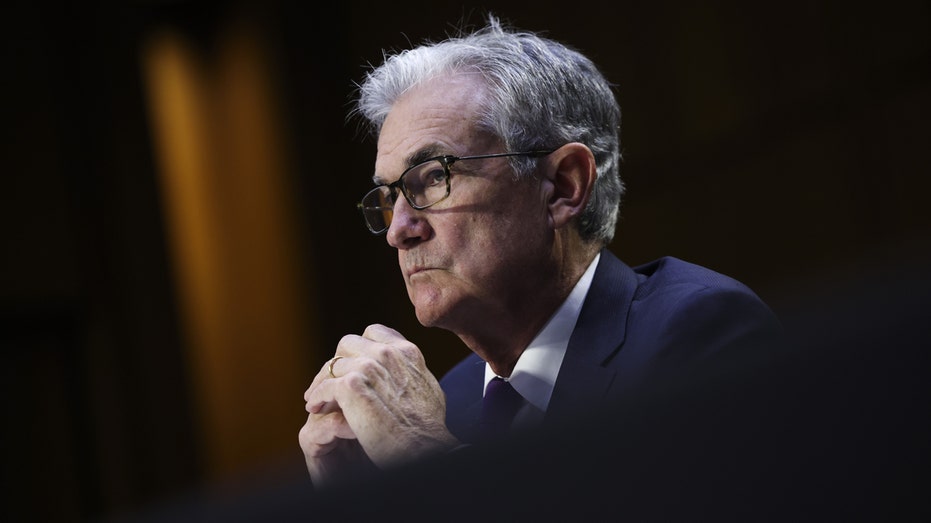Fed raises interest rates for first time in 3 years, projects 6 more hikes as inflation soars
Federal Reserve increases key benchmark rate by 25-basis points
Fed raises fund rate by one quarter point
Nicole Webb, Gary Kaltbaum and Phil Blancato react to the Federal Reserve raising the fund rate by 25 basis points on 'Making Money.'
The Federal Reserve said on Wednesday that it would raise interest rates for the first time in three years as policymakers look to cool red-hot inflation, a move that comes at a precarious time for the U.S. economy as it confronts a continuing pandemic and a war in Europe.
The widely anticipated move – that the Fed would raise rates by 25-basis points – brings to an end the ultra-easy monetary policy put in place two years ago to prop up the economy through the COVID-19 pandemic.
The rate liftoff, which puts the benchmark federal funds rate at a range between 0.25% and 0.5%, is likely just the start of a series of increases intended to curb runaway inflation.
New economic projections released after the meeting show that policymakers expected six more, similarly sized increases over the course of 2022 after consumer prices hit a 40-year-high. It marks a considerable shift from just six months ago, when half of the central bankers believed interest rate increases were not warranted until at least 2023. Fed officials also expect inflation to remain elevated, ending 2022 at 4.3% – far above the Fed's annual target of 2.3%.
"With appropriate firming in the stance of monetary policy, the committee expects inflation to return to its 2 percent objective and the labor market to remain strong," the Fed said in its post-meeting statement. It noted the committee anticipates "that ongoing increases in the target range will be appropriate."
Just one voting member of the Federal Open Market Committee dissented: St. Louis Fed President James Bullard, who wanted a 50-basis point increase.
RUSSIA INVADES UKRAINE: LIVE UPDATES
The meeting comes one week after the Labor Department said the consumer price index rose 7.9% in February from the previous year, marking the fastest increase since January 1982, when inflation hit 8.4%. The CPI – which measures a bevy of goods ranging from gasoline to health care – rose 0.8% from January.
But the Fed must walk an economic tightrope this week as it juggles sky-inflation with the COVID-19 health crisis, including new health restrictions in major Chinese cities, and the Russia-Ukraine war. Officials downgraded their forecast this year, penciling in much slower economic growth of 2.8%, down from a 4% estimate in December.

Jerome Powell, chairman of the U.S. Federal Reserve, during a Senate Banking, Housing and Urban Affairs Committee hearing in Washington, D.C., U.S., on Tuesday, Sept. 28, 2021. (Kevin Dietsch/Getty Images/Bloomberg via Getty Images / Getty Images)
Although Fed officials carefully telegraphed to the public their rate-hike plans, the Russian invasion of Ukraine, which has triggered a massive humanitarian crisis, has upended those plans. Some analysts have warned that because the conflict exacerbated already sky-high inflation, it could force the central bank to take a more nimble approach or risk inducing a recession.
GET FOX BUSINESS ON THE GO BY CLICKING HERE
During his post-meeting press conference, however, Chair Jerome Powell downplayed broader economic concerns from the war.
"The probability of a recession in the next year is not particularly elevated," Powell told reporters, citing the strong labor market, solid payroll growth and strong business and household balance sheets. "All signs are that this is a strong economy, and one that will be able to flourish in the face of less accommodative monetary policy."





















